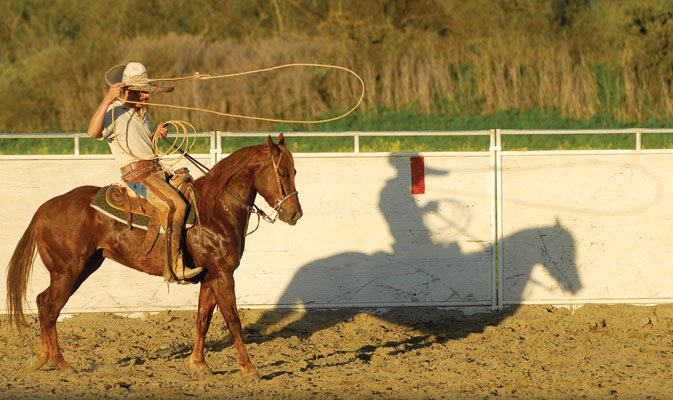Santa Clara County Supervisors appear closer to adopting an
animal cruelty ordinance that would specifically ban steer tailing
in unincorporated parts of the county.
Santa Clara County Supervisors appear closer to adopting an animal cruelty ordinance that would specifically ban steer tailing in unincorporated parts of the county.
The Mexican-style rodeo exercise is performed by a charro, or Mexican cowboy, by grabbing the steer’s tail, wrapping it beneath his stirrup and flipping the steer to the ground.
“They say that they (charros) don’t do that anymore. They claim they’re not (doing steer tailing) so that’s going to be gone. I can almost guarantee it – that and tripping,” said Supervisor Don Gage, whose district encompasses South County where many of the rodeos take place.
Marcos Franco, national chairman of the U.S. Mexican Federation of Charreria, said his organization conducted a study in 2002 of the more than 40 Mexican arenas in California and there have not been any animal cruelty cases. “This tells you there are no accidents to be had,” he said.
Supervisors accepted a report last week prepared by the county Housing, Land Use, Environment and Transportation Committee included a recommendation that both circus and rodeo events have a veterinarian present when animals are performing.
The committee asked the board to have Santa Clara County’s Animal Advisory Commission hold a public hearing for input on the proposed ordinance at the beginning of October in a South County facility, said Gage.
“It’s a sanctioned, well-organized event. And it’s a tradition. And we’ve learned even more over the years how to protect the animals,” said Franco, adding that changes have been made to the arenas and other parts of the event to protect the animals. For example, the charros use grass ropes now, instead of the traditional nylon ropes, he said.
Franco compares taking steer tailing out of the event to taking second base out of baseball. “If the county was to ban the tailing, the people that are honest and caring are going to quit. We’re better off leaving it (the way it is) and regulating it … Let’s see what we can do. Let’s work it out,” said Franco.
Toby de la Torre, president of Federation of Charros U.S.A. Inc., said, “We were told there was going to be a study. They forewent everything it seems like and sent only on some observations,” adding there is nothing to justify the singling out of the steer-tailing event. De la Torre said the charros never claimed they don’t do steer-tailing.
De la Torre said steer-tailing and steer wrestling are similar in that both rope the animal and bring it to the ground. De la Torre notes a “big difference is the size of the hat and the color of the participant,” because steer-tailing is particular to Mexican charros and steer wrestling is done by American cowboys. De la Torre said he feels the Mexican charros are being targeted.
The new ordinance, according to a memo from Supervisor Pete McHugh to the board, would include requiring a veterinarian to attend the duration of a rodeo or circus event where animals are performing, banning steer tailing, and defining a rodeo specifically as a “a performance featuring competition between persons that includes one or more of the following events: bareback bronc riding, saddle bronc riding, bull riding, calf roping, steer wrestling, or team roping.” Right now, state law defines a rodeo as having three or more of these events.
“It would supplement laws from the state … (the ordinance) is certainly more focused and more direct,” said Greg Van Wassenhove, the county’s agriculture commissioner.
Van Wassenhove said he thinks “there will be some form of oversight for rodeos” in the coming months.
Animal rights groups, like the Defend Animals Coalition, want more events and devices banned than what is stated in the proposed ordinance. “Circuses, rodeos and charreadas are inherently inhumane, all of them,” said Alfredo Kuba, president of the Mountain View-based Defend Animals Coalition.
“Supervisor Gage is sabotaging this effort. He’s trying to water down the language so that it’s not an issue,” said Kuba, adding that he wants the ordinance to prohibit any device or act that causes pain or harm to an animal.












